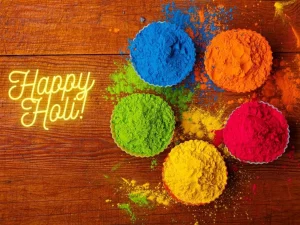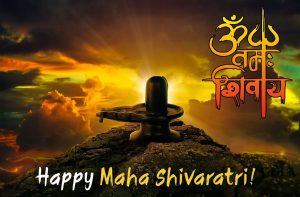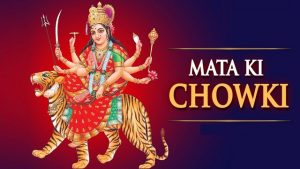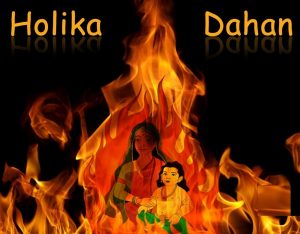HOLI

Holi ( /ˈhoʊliː/), also known as the Festival of Colours, the Festival of Spring, and the Festival of Love, is an ancient Hindu religious festival and one of the most popular festivals in Hinduism. It celebrates the eternal and divine love of Radha Krishna. The day also signifies the triumph of good over evil, as it commemorates the victory of Lord Vishnu as Narasimha Narayana over Hiranyakashipu. It originated and is predominantly celebrated in the Indian subcontinent but has also spread to other regions of Asia and parts of the Western world through the Indian diaspora.
Holi celebrates the arrival of spring, the end of winter, the blossoming of love and for many, it is a festive day to meet others, play and laugh, forget and forgive, and repair broken relationships. The festival is also an invocation for a good spring harvest season. It lasts for a night and a day, starting on the evening of the Purnima (Full Moon Day) falling in the Hindu calendar month of Phalguna, which falls around the middle of March in the Gregorian calendar. The first evening is known as “Holika Dahan” or “Chhoti Holi” and the following day as “Holi”, “Rangwali Holi”, “Dol Purnima”, “Dhuleti”, “Dhulandi”, “Ukuli”, “Manjal Kuli”, “Yaosang”, “Shigmo”, “Phagwah”, or “Jajiri”.
Holi celebrations start on the night before Holi with a Holika Dahan where people gather, perform religious rituals in front of a bonfire, and pray that their internal evil be destroyed the way Holika, the sister of the demon king Hiranyakashipu, was killed in the fire. The next morning is celebrated as Rangwali Holi (Dhuleti) where people smear and drench each other with colours. Water guns and water-filled balloons are often used to play and colour each other, with anyone and anyplace being considered fair game to color. Groups often carry drums and other musical instruments going from place-to-place singing and dancing. Throughout the day people visit family, and friends and foes come together to chat, enjoy food and drink, and partake in Holi delicacies.




